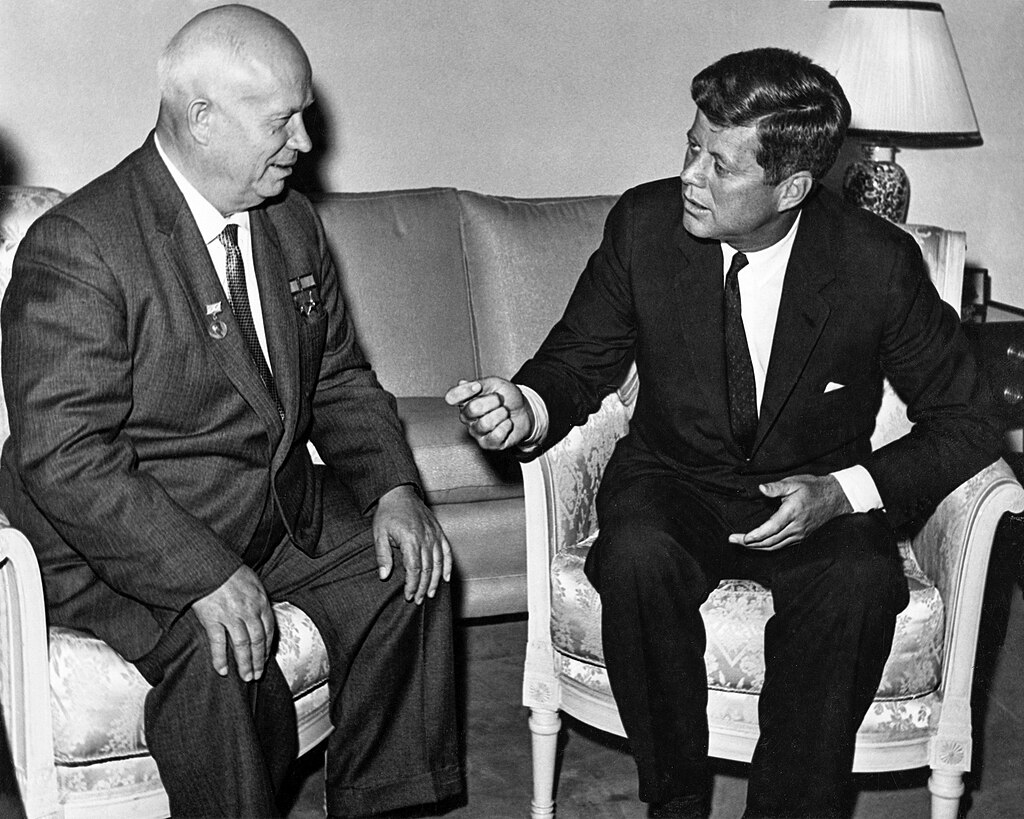The Vienna Summit of 1961, held on June 3-4, between President John F. Kennedy of the United States and Premier Nikita Khrushchev of the Soviet Union, marked a crucial turning point in the tense relationship between the two superpowers during the Cold War. It was their first face-to-face meeting, providing an opportunity for both leaders to assess and challenge each other’s positions while setting the stage for future negotiations and power dynamics. This article delves into the significance of the Vienna Summit, its outcomes, and its impact on the global geopolitical landscape.
Historical Context:
The early 1960s were characterized by heightened tensions between the United States and Soviet Union, with the nuclear arms race and the construction of the Berlin Wall exacerbating the animosity. Against this backdrop, the Vienna Summit emerged as a platform for open dialogue between Kennedy and Khrushchev, thus presenting a unique opportunity to alleviate tensions and stabilize relations.
Key Objectives:
President Kennedy sought to address several pressing issues during the summit. Foremost among them was Khrushchev’s ultimatum demanding that NATO withdraw from West Berlin. Kennedy also aimed to discuss nuclear disarmament, the fight against communism, and the status of divided Germany.
Khrushchev, on the other hand, sought to exploit Kennedy’s relative inexperience in foreign affairs and test his resolve, while also asserting the Soviet Union’s dominance as a global superpower.
Challenges and Negotiations:
The Vienna Summit was characterized by intense negotiations that lasted for two days. Kennedy faced an uphill battle in dealing with the seasoned and shrewd Khrushchev, whose aggressive stance was apparent from the outset. Khrushchev’s dismissive attitude towards Kennedy’s youth and political background posed a significant challenge for the American president.
During the negotiations, Kennedy staunchly defended Western values and democracy, expressing his unwavering commitment to safeguarding West Berlin and rejecting Khrushchev’s demands for its withdrawal. Although unable to secure a final resolution on the Berlin question, Kennedy successfully conveyed his determination to protect American interests and defend democracy against communism.
Outcomes and Implications:
The Vienna Summit had far-reaching implications for the course of the Cold War. While no concrete agreements were reached during the talks, the summit provided valuable insight into the strengths and weaknesses of both leaders. Kennedy’s performance, although criticized at the time, ultimately resulted in a newfound respect from Khrushchev, who acknowledged Kennedy’s strength and resolve.
The summit also laid the groundwork for subsequent negotiations and agreements, including the Partial Test Ban Treaty of 1963, which limited nuclear testing. Kennedy’s determination and insistence on dialogue, even in the face of adversity, set the stage for future diplomatic breakthroughs and eased tensions between the superpowers.
Legacy and Lessons Learned:
The Kennedy and Khrushchev Vienna Summit stands as a testament to the power of diplomacy and open dialogue, even in times of intense conflict. It demonstrated that direct interaction between leaders can foster understanding and potentially prevent catastrophic confrontations.
Furthermore, the summit highlighted the importance of experience and knowledge in international relations. Kennedy’s preparation and resilience, despite his relative youth, proved pivotal in gaining the respect of Khrushchev and avoiding any major escalation in the Cold War.
The Vienna Summit between Kennedy and Khrushchev was a critical moment in Cold War history. It showcased the power of diplomacy and negotiation in de-escalating tensions between the United States and the Soviet Union. Although no major agreements were reached, the summit provided valuable lessons for future dialogue and set the tone for subsequent negotiations. Ultimately, this meeting served as a stepping stone towards a more stable global geopolitical landscape, influencing future diplomatic endeavors and the eventual end of the Cold War.
